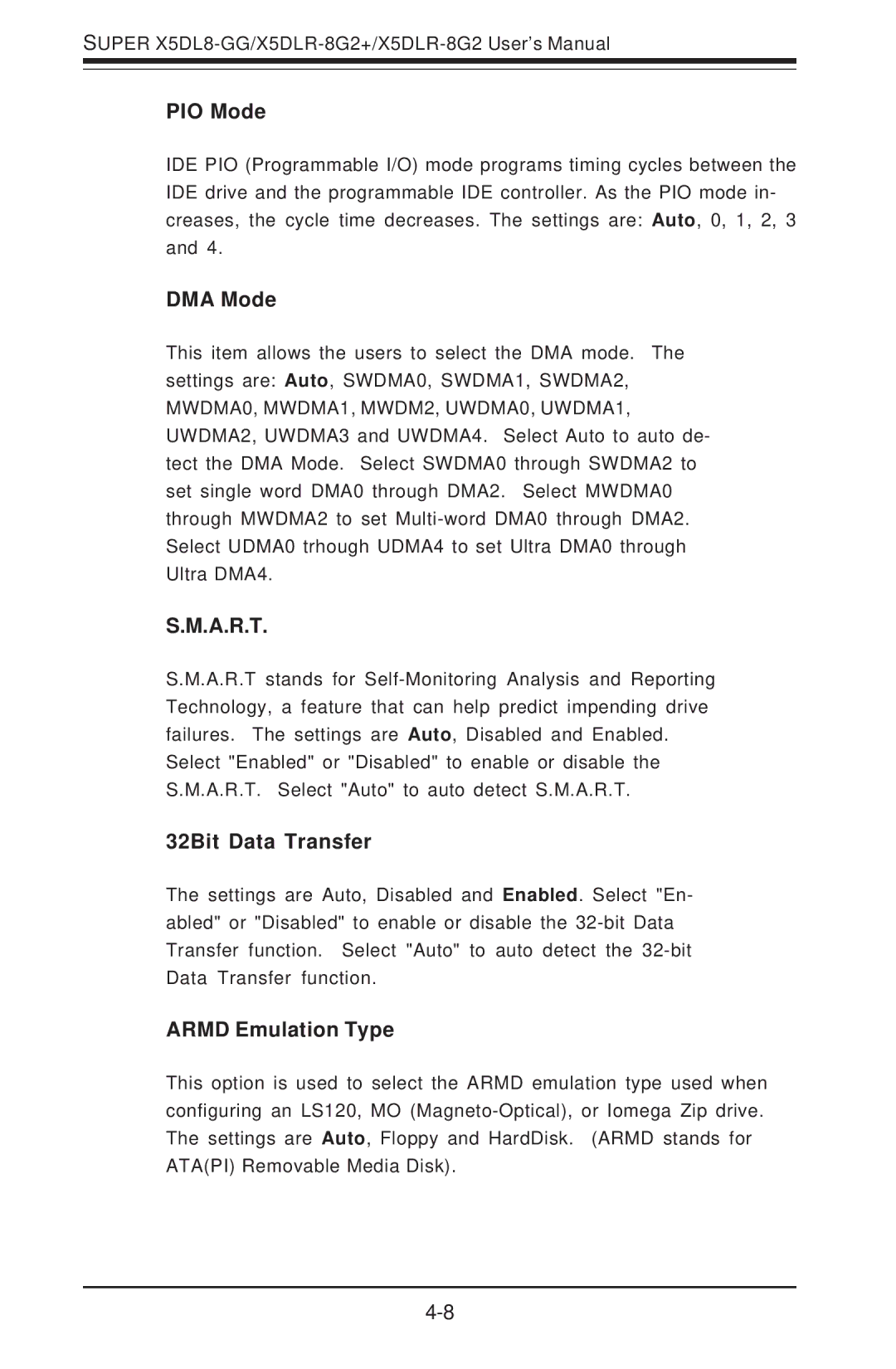
SUPER X5DL8-GG/X5DLR-8G2+/X5DLR-8G2 User’s Manual
PIO Mode
IDE PIO (Programmable I/O) mode programs timing cycles between the IDE drive and the programmable IDE controller. As the PIO mode in- creases, the cycle time decreases. The settings are: Auto, 0, 1, 2, 3 and 4.
DMA Mode
This item allows the users to select the DMA mode. The settings are: Auto, SWDMA0, SWDMA1, SWDMA2, MWDMA0, MWDMA1, MWDM2, UWDMA0, UWDMA1, UWDMA2, UWDMA3 and UWDMA4. Select Auto to auto de- tect the DMA Mode. Select SWDMA0 through SWDMA2 to set single word DMA0 through DMA2. Select MWDMA0 through MWDMA2 to set
S.M.A.R.T.
S.M.A.R.T stands for
Select "Enabled" or "Disabled" to enable or disable the S.M.A.R.T. Select "Auto" to auto detect S.M.A.R.T.
32Bit Data Transfer
The settings are Auto, Disabled and Enabled. Select "En- abled" or "Disabled" to enable or disable the
ARMD Emulation Type
This option is used to select the ARMD emulation type used when configuring an LS120, MO
